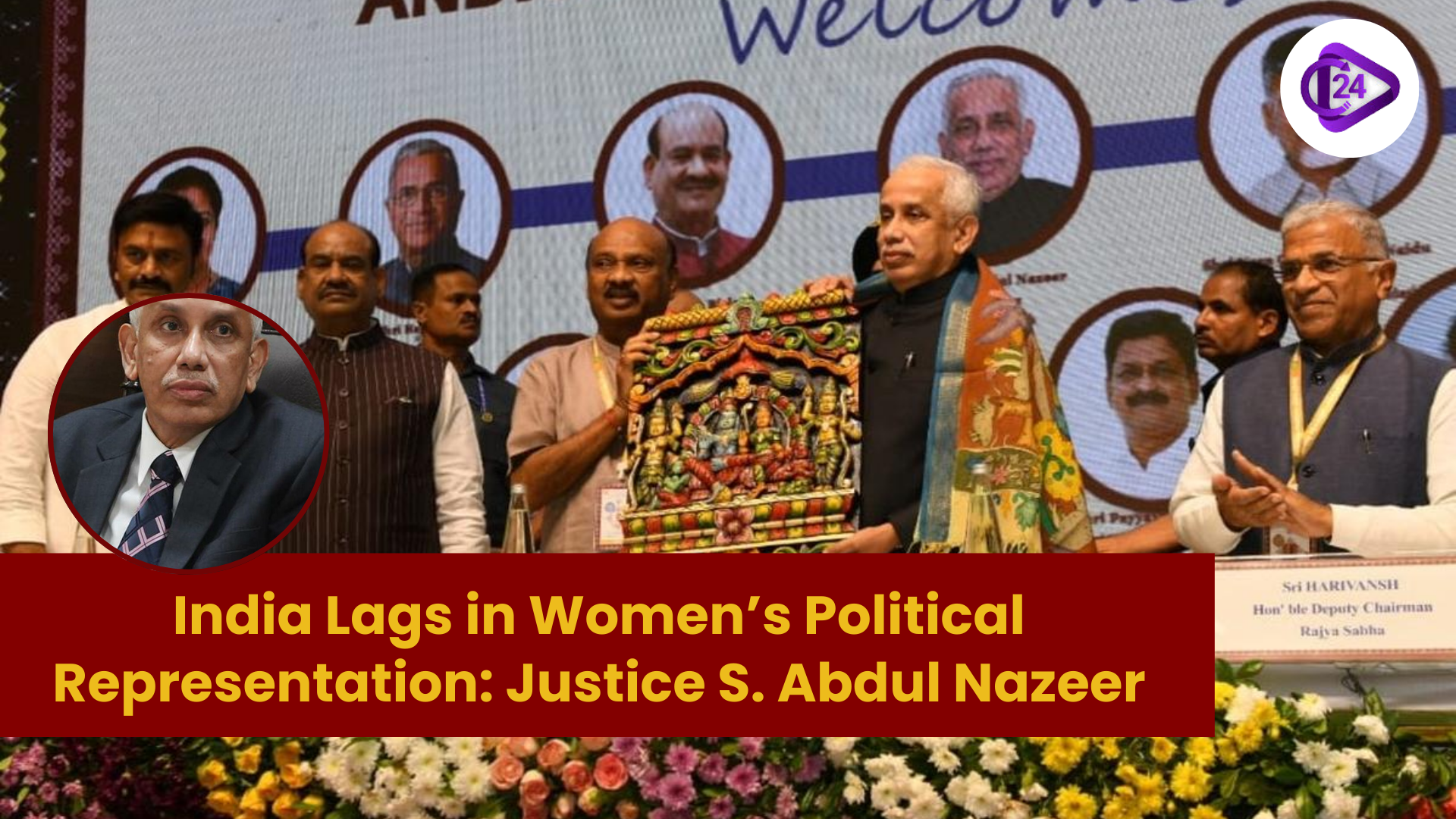
In the inaugural national conference on women's empowerment parliamentary and legislative committees, Governor of Andhra Pradesh Justice S. Abdul Nazeer cited India's poor female representation in politics as 148th among 193 nations. Referring to the enactment of the Women's Reservation Bill, he underlined its potential to boost women legislators in Parliament and State Assemblies. Justice Nazeer also referred to variations in participation of women from State Assemblies, where some states were more represented than others. Lok Sabha Speaker Om Birla showed alarm at the absence of legislative committees for women's empowerment and assured steps to provide redressal to gender issues in state legislatures.
Key Points
Political Empowerment of Women in India:
-
India ranks 148th in the world among 193 nations, and 31st in 47 Asian nations, in terms of women's representation in Parliament.
-
The Women's Reservation Bill seeks to provide a reservation of 33% seats for women in the Lok Sabha and State Assemblies to enable them to enter governance and policy-making processes.
-
Chhattisgarh tops with the highest rate of women legislators in State Assemblies (18%). Himachal Pradesh has only one woman MLA, Mizoram has none.
Justice Nazeer's Remarks:
-
Justice Nazeer quoted the Sanskrit line, "Where women are honoured, divinity flourishes," emphasizing women's dignity in the progress of society.
-
Quoted various legal provisions and judicial rulings designed to safeguard women, highlighting legal action for women's protection and empowerment.
Representation of Women in Legislature:
-
The Women's Reservation Bill was brought into focus as a revolutionary step towards increasing the political representation of women.
-
Legislative assemblies differ in women's representation, with Chhattisgarh topping the list at 18%, with other states lagging behind, highlighting the necessity of countrywide concentration on gender equality in politics.
Concern of Lok Sabha Speaker:
-
Om Birla expressed concern over the lack of legislative committees for women's empowerment in some State Assemblies.
-
He said he would write to State Assemblies, requesting them to form committees dealing with women's empowerment and child development.
Importance of the Event
-
Policy Effect: The Women's Reservation Bill introduces a significant step toward fair representation in Indian politics.
-
Advocacy for Gender Equality: Justice Nazeer and Speaker Birla's remarks emphasize the significance of institutional changes toward gender equality in political environments.
-
Raising Awareness: The debate raised awareness about women's underrepresentation at the state and national levels, calling for legislative amendments and action plans.
-
Future Ramifications: The development of women-focused legislative committees at the state level may set the stage for more targeted and successful policymaking on issues impacting women.
Conclusion
The statements by Justice Nazeer and Lok Sabha Speaker Om Birla at the national conference highlight the pressing need for enhancing women's representation in India's politics. As India's ranking lags behind the international standard of women's political empowerment, the Women's Reservation Bill becoming law holds out the promise of more gender equality in politics. For UPSC, this is a must-study case of gender equality, political empowerment, and policy change that underlines the importance of institutional mechanisms to ensure equity in politics.



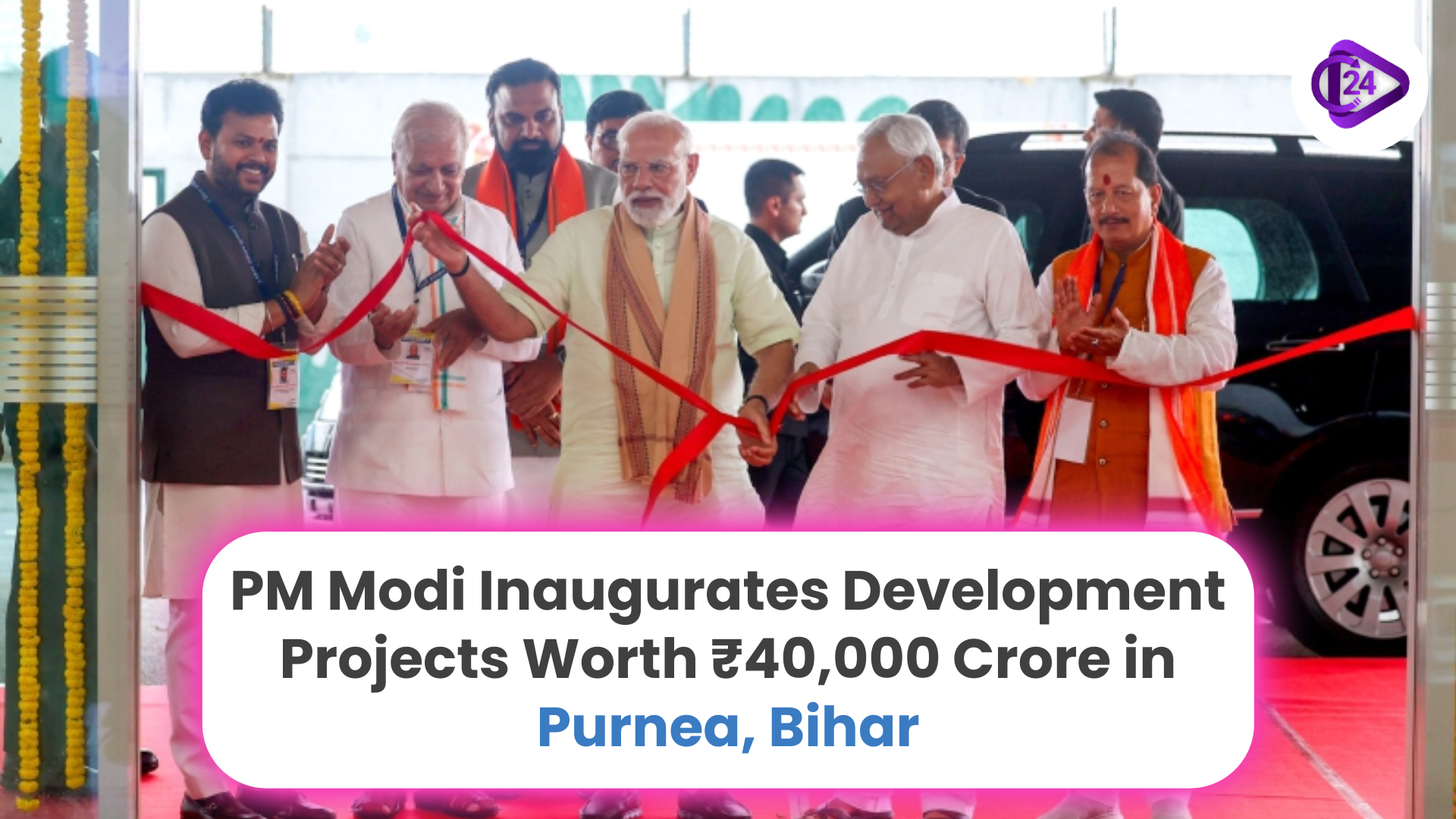 PM Modi Inaugurates Development Projects Worth ₹40,000 Crore in Purnea, Bihar
PM Modi Inaugurates Development Projects Worth ₹40,000 Crore in Purnea, Bihar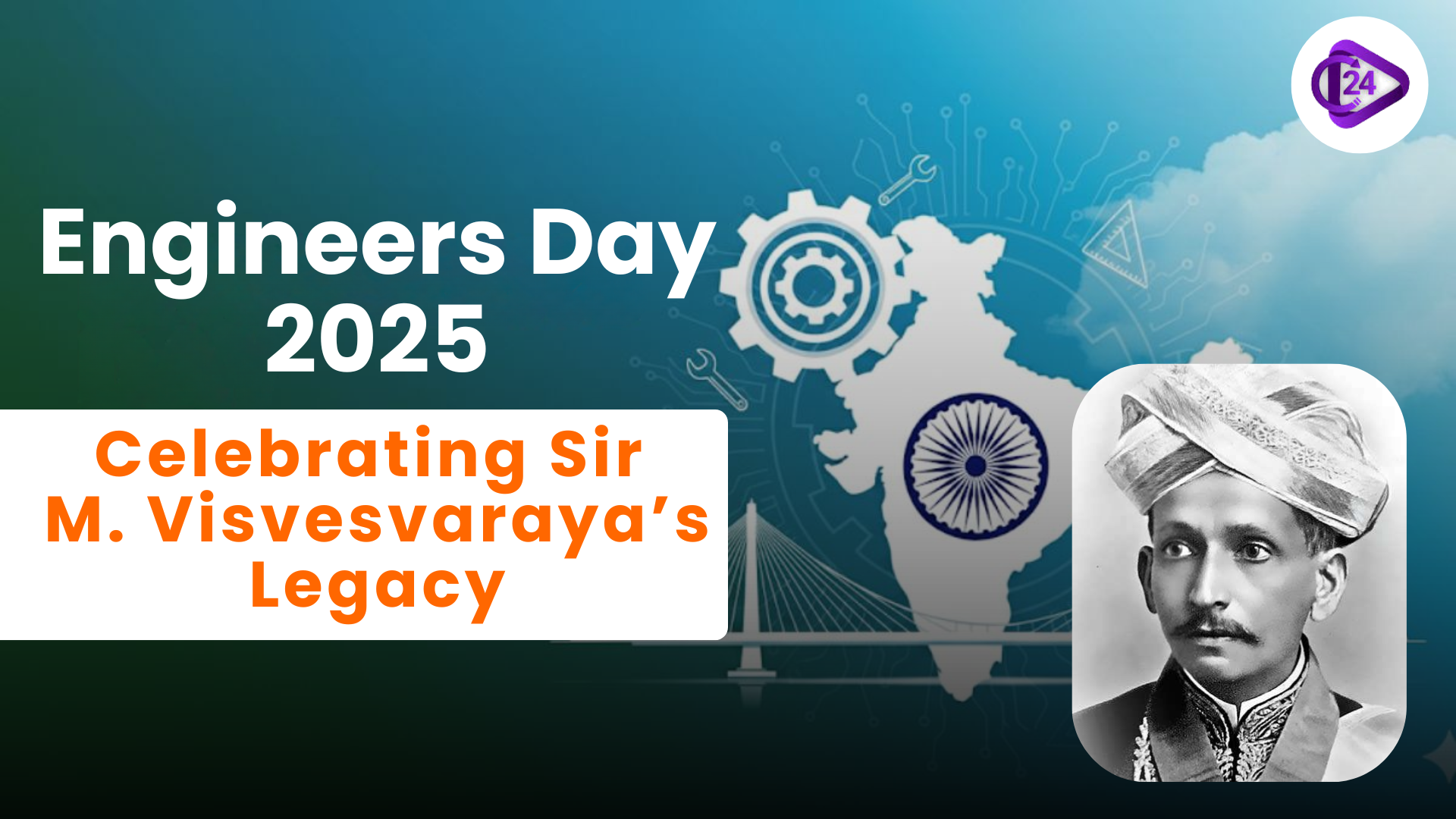 Engineers Day 2025: Celebrating Sir M. Visvesvaraya’s Legacy
Engineers Day 2025: Celebrating Sir M. Visvesvaraya’s Legacy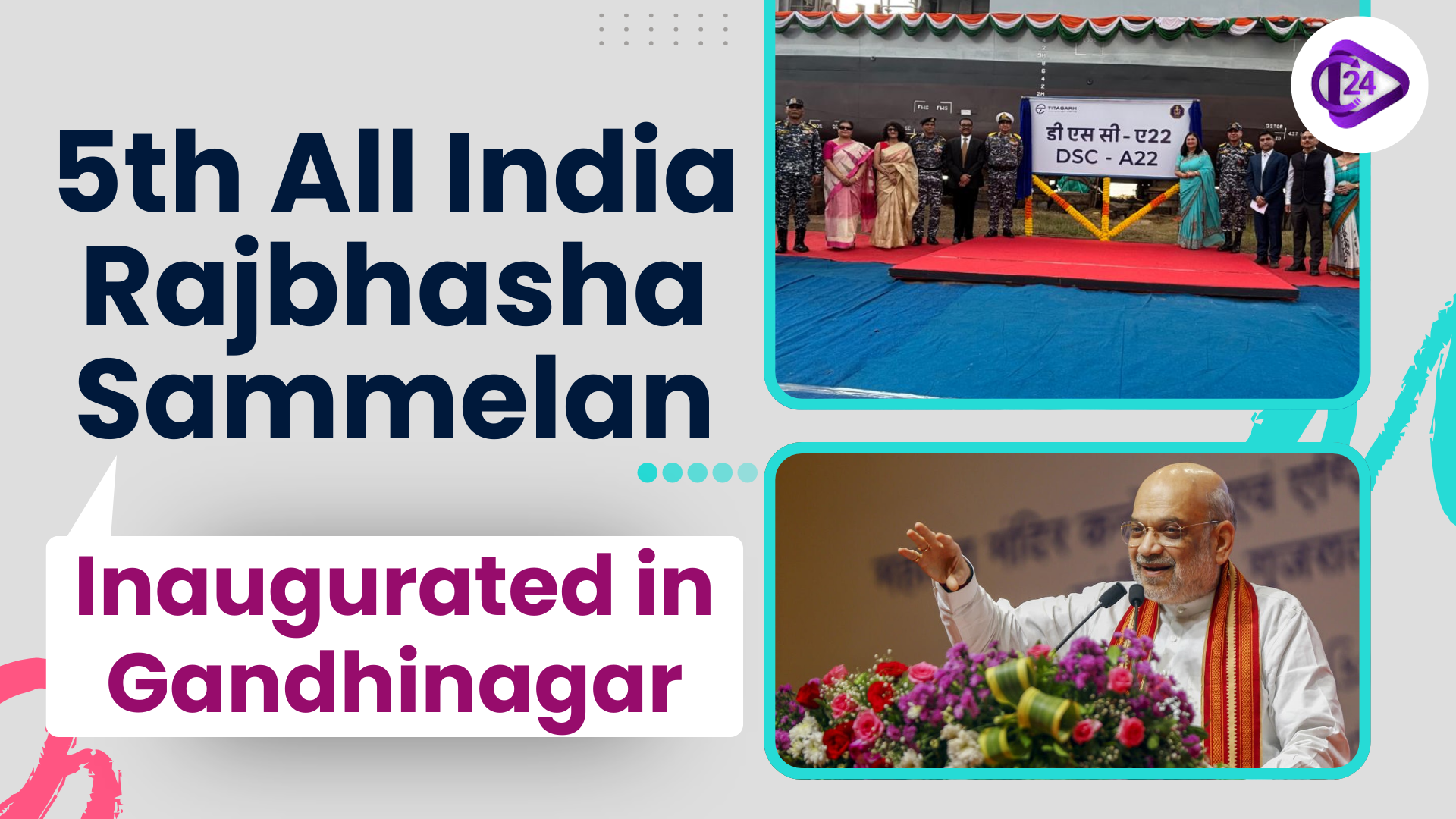 5th All India Rajbhasha Sammelan Inaugurated in Gandhinagar
5th All India Rajbhasha Sammelan Inaugurated in Gandhinagar India Achieves 250 GW Non-Fossil Fuel Power Capacity
India Achieves 250 GW Non-Fossil Fuel Power Capacity Great Nicobar Island Project: Transforming India’s Southernmost Island
Great Nicobar Island Project: Transforming India’s Southernmost Island Namo Bharat Becomes India’s Fastest Train on Delhi-Meerut RRTS
Namo Bharat Becomes India’s Fastest Train on Delhi-Meerut RRTS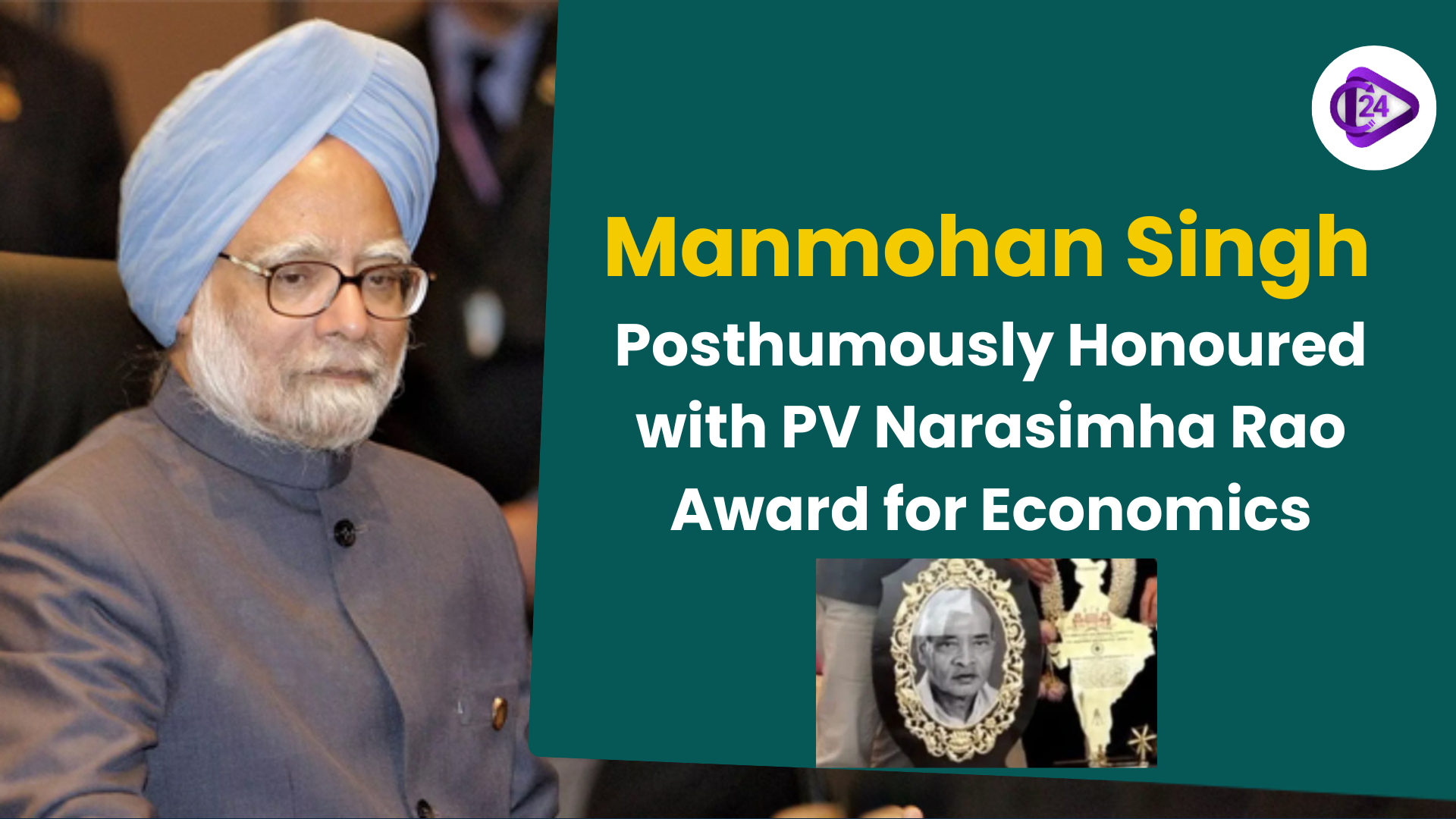 Manmohan Singh Posthumously Honoured with PV Narasimha Rao Award for Economics
Manmohan Singh Posthumously Honoured with PV Narasimha Rao Award for Economics Digital Platform to Preserve Tribal Art and Culture Launched: Adi Sanskriti
Digital Platform to Preserve Tribal Art and Culture Launched: Adi Sanskriti Centre Grants Licenses to Five Firms for Indigenous Malaria Vaccine
Centre Grants Licenses to Five Firms for Indigenous Malaria Vaccine






